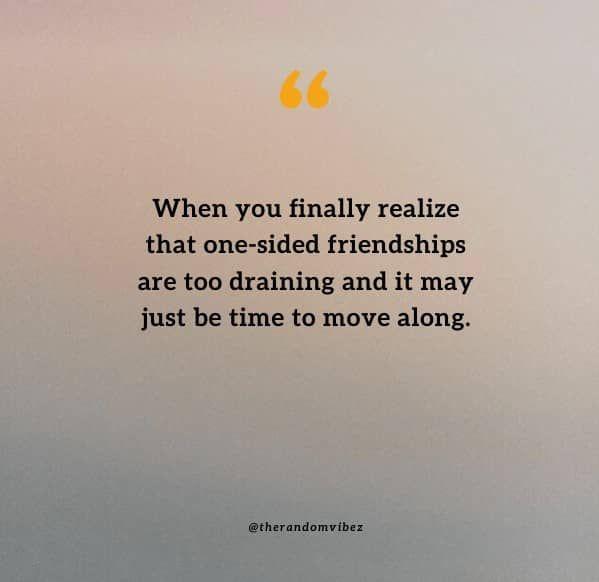Friendships are meant to be a two-way street, filled with mutual support, laughter, and shared memories. But what happens when you start feeling like you’re the only one putting in the effort? It’s a tough and often confusing place to be, especially when you care deeply about the person on the other end. If you’ve ever found yourself questioning whether your friendship is truly balanced, you’re not alone. In this article, we’ll explore 7 clear signs you’re in a one-sided friendship—and offer some insight into what you can do about it. Let’s dive in and help you figure out if you’re giving more than you’re getting.
Table of Contents
- Signs Your Friend Only Reaches Out When They Need Something
- How to Tell If You’re Always the One Making Plans
- Recognizing When Your Efforts Aren’t Reciprocated
- Practical Steps to Address Imbalance and Protect Your Wellbeing
- The Way Forward
Signs Your Friend Only Reaches Out When They Need Something
It’s easy to spot when a friend’s texts or calls suddenly spike only around their moments of need. You might notice that invitations to hang out or simply check in are scarce, but a request for favors or help arrives with precision timing. These interactions feel transactional, leaving you with the unmistakable impression that your friendship is valued most for what you can provide, rather than for who you are. When you’re always the one giving, it tends to drain your emotional energy and blurs the true meaning of connection.
Reflect on how often they initiate contact outside of emergencies or requests. If you find yourself on the receiving end of messages that look like:
- “Can you help me move this weekend?”
- “I need a favor, do you have time?”
- “Could you cover my shift?”
but barely hear from them otherwise, your friendship might be more about convenience than companionship. True friends reach out just to share life’s little moments, not only when they want something from you.
How to Tell If You’re Always the One Making Plans
Do you find yourself constantly initiating plans, only to be met with vague confirmations or last-minute cancellations? When your phone is the one buzzing with invitations you sent out, it might be a sign that the effort isn’t being reciprocated. Friends who genuinely care tend to show enthusiasm in making plans too—not just responding when prompted. If your calendar is full of solo efforts to coordinate hangouts, it’s worth reflecting on who’s really invested.
Watch for these subtle clues:
- They rarely suggest meeting up, but are quick to accept whenever you ask.
- When asked what they want to do, they usually say “I’m good with whatever,” leaving the entire decision-making to you.
- They often cancel at the last minute without trying to reschedule.
- Your excitement about plans seems one-sided, while their replies feel lukewarm or half-hearted.
Being the default planner can drain your enthusiasm for the friendship, making the effort feel more like obligation than joy. Recognizing these patterns is the first step to deciding whether to address the imbalance or invest your energy elsewhere.
Recognizing When Your Efforts Aren’t Reciprocated
It’s easy to get caught up in the excitement of connecting with someone you care about, but sometimes, the effort you put in isn’t met with the same enthusiasm. When you find yourself always reaching out first, initiating plans, or offering support without much in return, it’s a strong indication that the balance is off. Notice if your messages go unanswered for hours — or even days — while you keep waiting patiently. This dynamic can leave you feeling drained and undervalued because genuine friendships thrive on mutual energy.
Keep an eye out for these subtle yet telling signs that your time and care might not be reciprocated:
- One-sided communication: You are the primary one making contact.
- Plans always on your terms: You’re the only one suggesting meetups or catch-ups.
- Minimal interest in your life: They rarely ask about your day or feelings.
- Lack of support: Their presence fades when you need encouragement or advice.
Practical Steps to Address Imbalance and Protect Your Wellbeing
It’s essential to set clear boundaries that protect your emotional energy. Start by evaluating what you’re willing to give and where you need to draw the line. Communicate your feelings honestly but kindly—true friends will respect your limits. Surround yourself with supportive people who make you feel valued, and don’t hesitate to limit time spent on one-sided connections that drain you. Remember, saying no isn’t selfish; it’s a vital act of self-care that preserves your wellbeing.
Another practical step is to cultivate self-awareness through regular reflection. Journal your experiences or talk things over with a trusted confidant to gain clarity on your feelings. Engage in activities that boost your confidence and joy outside of your friendship circle, whether it’s a hobby, exercise, or mindfulness practices. These habits not only strengthen your independence but also help you attract healthier relationships where reciprocity and respect thrive.
The Way Forward
Navigating friendships can be tricky, especially when the effort isn’t equally shared. Recognizing these 7 clear signs of a one-sided friendship is the first step toward finding more balanced and fulfilling connections. Remember, friendships should lift you up, not leave you feeling drained or unappreciated. Take a moment to reflect on your relationships and don’t be afraid to set healthy boundaries or seek out people who truly value the friendship as much as you do. After all, you deserve friends who are as invested in you as you are in them!

